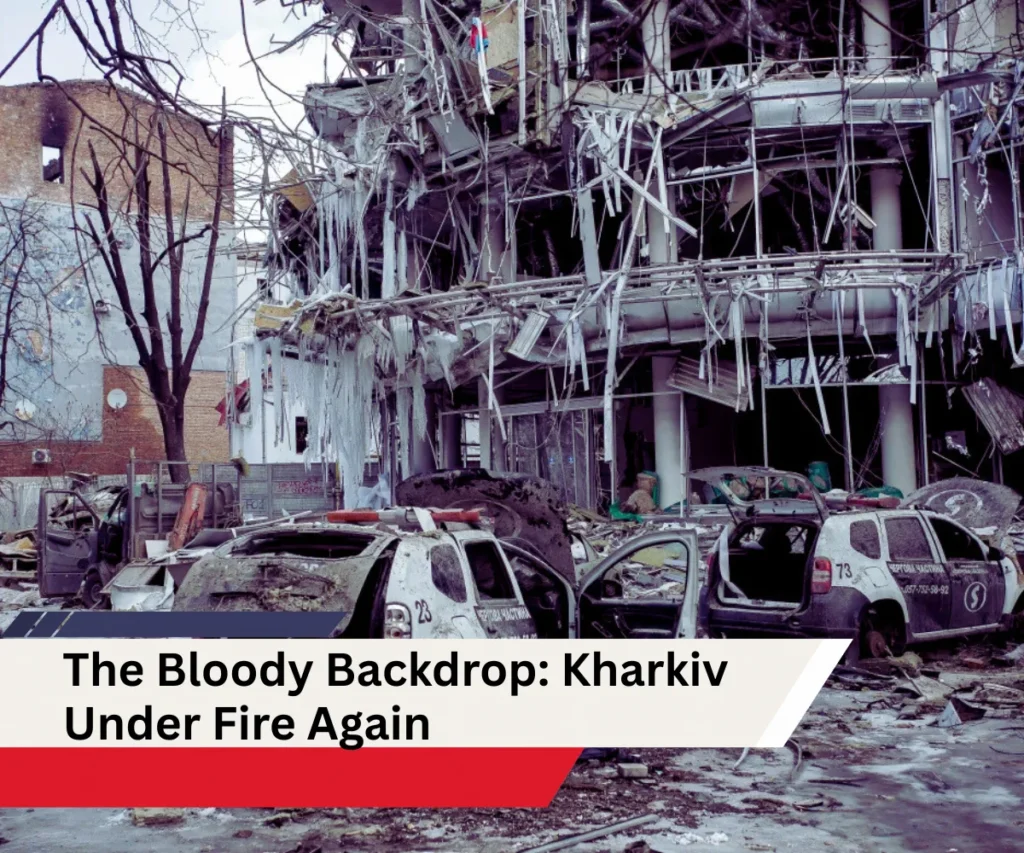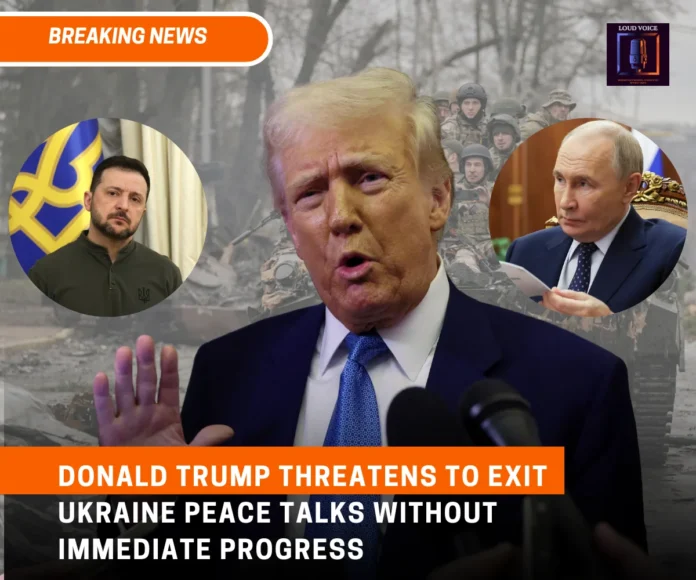Key Takeaways
- Trump Threatens to Exit Ukraine Peace Talks amid growing doubts over both sides’ commitment to a meaningful resolution and lasting ceasefire.
- Donald Trump and Secretary of State Marco Rubio cautioned that America’s patience has limits, making it clear that talks will not drag on without meaningful outcomes.
- A deadly missile attack on Kharkiv during Good Friday has reignited global concern, highlighting the fragile state of ceasefire efforts and the urgent need for resolution.
- Reports suggest the U.S. offered Moscow a package of economic incentives, including potential sanctions relief, as leverage to push forward a peace agreement.
- Trump maintains his stance is grounded in strategic realism, not favoritism—despite rising European skepticism about Washington’s evolving relationship with the Kremlin.
Trump’s Bold Ultimatum: Exit Peace Talks or Strike a Deal
In a dramatic and pointed address from the White House, former U.S. President Donald Trump issued a stark warning: unless visible progress is made in securing a ceasefire between Russia and Ukraine, the United States could pull out of the ongoing peace negotiations.
Speaking with a sense of urgency, Trump didn’t mince words: “It is coming to a head right now. We want to get it done. We are talking about people dying — on average, 2,500 young people a day are being killed in battle.”
Trump’s remarks intensified the strain on an already precarious peace process, underscoring the gravity of the ongoing war—one of Europe’s deadliest since World War II. Delivering a blunt warning, he said, “If either side proves too obstructive, we’ll call them out for their foolishness and step away from the table entirely”
The comments come as fresh missile strikes rock Ukraine’s second-largest city, Kharkiv, underscoring the high stakes and human cost of diplomatic delays.
The Bloody Backdrop: Kharkiv Under Fire Again
While leaders deliberate, Ukrainians continue to suffer. Just yesterday, a missile attack on a garment factory in Kharkiv killed one person and injured over 100. This tragic incident took place during Good Friday observances—a religious holiday that had been earmarked by U.S. diplomats as a symbolic deadline for a ceasefire agreement.

The timing is no coincidence. With Easter Sunday aligning on the same day in both Western and Eastern Orthodox calendars, negotiators hoped the shared sacred date might inspire a breakthrough. Instead, it served as a grim reminder that even sacred traditions can’t pause modern warfare.
Rubio Echoes Trump: “We Have Other Priorities”
U.S. Secretary of State Marco Rubio reinforced Trump’s ultimatum, hinting that Washington’s tolerance for stalled progress is nearing its limit. Speaking in Paris following high-level discussions with Ukrainian and European leaders, Rubio stated bluntly, “We’re talking days now—not weeks. If this peace effort doesn’t show real promise soon, we’ll have no choice but to move forward.“
His remarks marked a clear pivot from patient diplomacy to a more no-nonsense, outcome-driven approach. Supporters view it as a strategic push to break the stalemate. However, skeptics caution that this shift in tone could backfire—potentially weakening Ukraine’s position if Western commitment begins to waver.
Incentives and Concessions: Is the U.S. Playing the Negotiation Card Too Hard?
Insiders familiar with the negotiations reveal that Washington has floated a set of high-stakes incentives aimed at drawing Moscow into serious peace discussions. Among the proposals are a phased rollback of economic sanctions and the possibility of reviving select U.S.–Russia trade relations—moves that have triggered quiet unease among European partners.
These overtures are reportedly being spearheaded by Trump’s special envoy, Steve Witkoff, who has engaged in several discreet meetings with Russian President Vladimir Putin in recent weeks. Despite a flurry of behind-the-scenes activity, tangible progress remains elusive. Detractors argue that Russia has yet to offer any meaningful gestures in return, casting doubt on the effectiveness of Witkoff’s shadow diplomacy.
Europe Grows Wary of Trump’s Pro-Russia Overtures
Across the Atlantic, European leaders are increasingly skeptical. Trump’s campaign trail boasts that he could “end the war in a single day” have done little to reassure those worried about potential softening toward Moscow.
In particular, Trump’s economic advisers have been openly advocating for reestablishing U.S.–Russia business relations—an idea that flies in the face of Europe’s continued sanctions and condemnation of Russian aggression.
UK Foreign Secretary David Lammy and other European diplomats are walking a tightrope, participating in talks but questioning Washington’s long-term commitment to supporting Ukraine without strings attached.
Trump: “Nobody Is Playing Me. I Am Trying to Help.”

Trump remains steadfast in his belief that his negotiating prowess sets him apart on the global stage. “I’ve spent my entire life closing deals,” he asserted. “I can tell when someone’s being genuine and when they’re just stalling. What I need to see now is a real desire to end this conflict—and I believe that desire is starting to show, on both sides.”
Trump framed his involvement as driven by humanitarian concerns, not political gamesmanship. Whether this belief aligns with facts on the ground remains hotly debated.
Realpolitik or Retreat? What Trump’s Threat Really Means
This isn’t just posturing. By threatening to walk away, Trump is attempting to force both Russia and Ukraine to make difficult decisions. But there’s also a risk—if the U.S. withdraws from talks, who fills the vacuum?
While Russia has historically responded better to strength than sympathy, experts warn that abandoning the table could leave NATO and the EU scrambling to maintain unity. “Trump’s ultimatum is a double-edged sword,” says Dr. Erica Handelson, a professor of international diplomacy. “It could either catalyze a deal or fracture the alliance that’s been so critical in pushing back against Russian aggression.”
Conclusion
Trump’s threat to exit peace talks over the Ukraine war might be strategic, but it also introduces a volatile new chapter in international diplomacy. As the war rages on and innocent lives are lost daily, time is of the essence. Whether Trump’s hardball tactics lead to peace—or simply more division—remains to be seen. One thing is certain: the world is watching, and history will judge.


